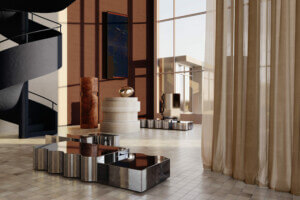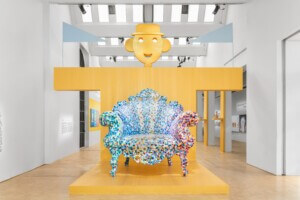Returning to the NYCxDesign scene after a pandemic-induced hiatus, Bay Area–based furnishings company Fyrn appeared at ICFF last week with an exciting product launch. To add to the existing offering of chairs, stools, and nesting tables that have grown beloved among restauranteurs in San Francisco and beyond, Fyrn introduced a complementary cafe table. In the decade spent building the brand, cofounders David Charne and Ros Broughton have taken their time to roll out new offerings, centering craft, sustainability, and longevity over profit and production. With both formal and familial training as a craftsman, Broughton developed the original seating design around a proprietary hardware system. Three years in the making, this system allows for easy assembly and replacement in the event of damage, which is especially useful in high-traffic hospitality settings.
AN Interior sat down with Broughton to better understand the evolution of this system as it aligns with the ethos of the company and what a presence at New York Design Week means for the future of the brand.

Sophie Aliece Hollis: How does your familial history in manufacturing manifest itself within Fyrn?
Ros Broughton: Woodworking is the foundation of my practice, so it’s a natural and crucial component to the Fyrn brand. Craftsmanship goes back four generations in my family, and I was fortunate enough to always have access to a woodshop. I spent a lot of time designing, experimenting, and learning from relatives who gave me guidance I couldn’t have gotten anywhere else.
Growing up, my grandfather often shared the manufacturing challenges he faced as the head of production for the revived Hitchcock Chair Company. As I began to design my own furniture line, I wanted to respond and find solutions to his challenges. This eventually led to the development of the Stemn System, which is the foundation of Fyrn.
SAH: What problem does Fyrn’s proprietary hardware system, Stemn, seek to solve? What sets this system apart from others?
RB: Development of the Stemn System was a reaction to the lack of access to well-crafted furniture. I wanted to find a way to bring functional, beautifully made, handcrafted products to as many people as possible. But in order to scale handcraft, I needed to develop a design system that solved for a few constraints—strength and durability, repair and replaceability, and certain production and fulfillment efficiencies.
It took three years of research and development, with many trials and errors, to arrive at the system we have today.
Stemn is unique because it considers every step of the product cycle, from initial concept, design, final delivery and eventual repairs. We produce all of the pieces ourselves, on machines that we invented and own. Because of this, we’re able to operate in a circular product ecosystem and take responsibility for the product that we’re putting out in the world.

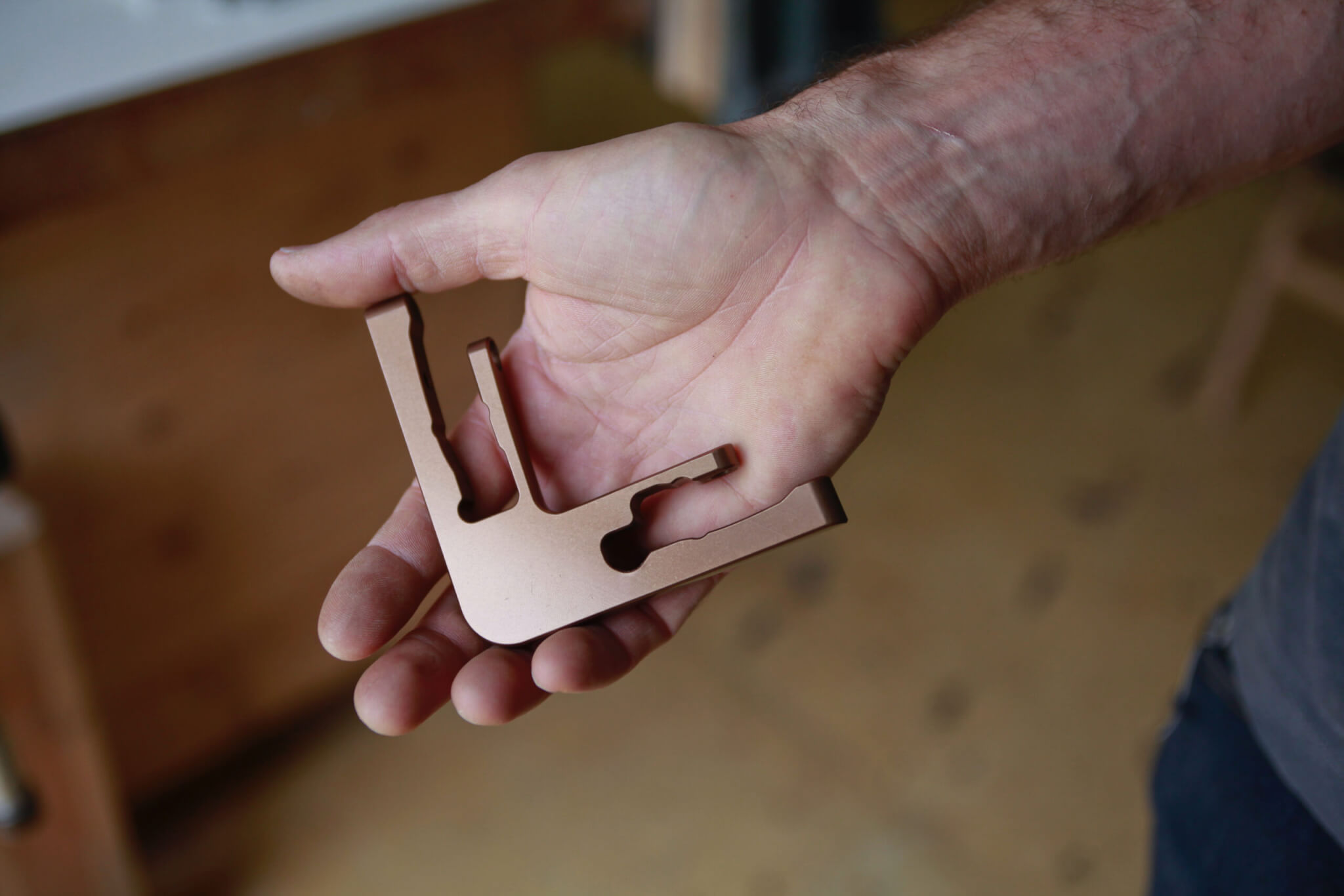
SAH: Since the company’s founding, you’ve been very conscious of how and when to expand Fyrn’s product offerings, which is refreshing in this age of mass production. Can you speak to the logic behind these careful rollouts?
RB: We take a lot of pride in the designs that we produce, and we want to impart a sense that the method of making something that matters to those who bring our furniture into their homes and projects. We want our product to be the absolute best thing we put forward, while also maintaining an efficient pace that allows us to manufacture products successfully. We continue to improve on our design and process, even 10 years in. It’s not about churning out as much product as possible, rather bringing to life quality pieces that can truly last and be serviced for generations.
SAH: Speaking of rollouts…tell me about the new cafe tables! How does this new product compliment or enhance Fyrn’s existing offering?
RB: For years, our chairs have shown up in some incredible commercial and hospitality projects, and for as many years, people asked when we’d be introducing tables. Our cafe tables are a natural complement to the seating series. They’re functional, quietly elegant, and respond to the needs of our first-rate hospitality and commercial clients.
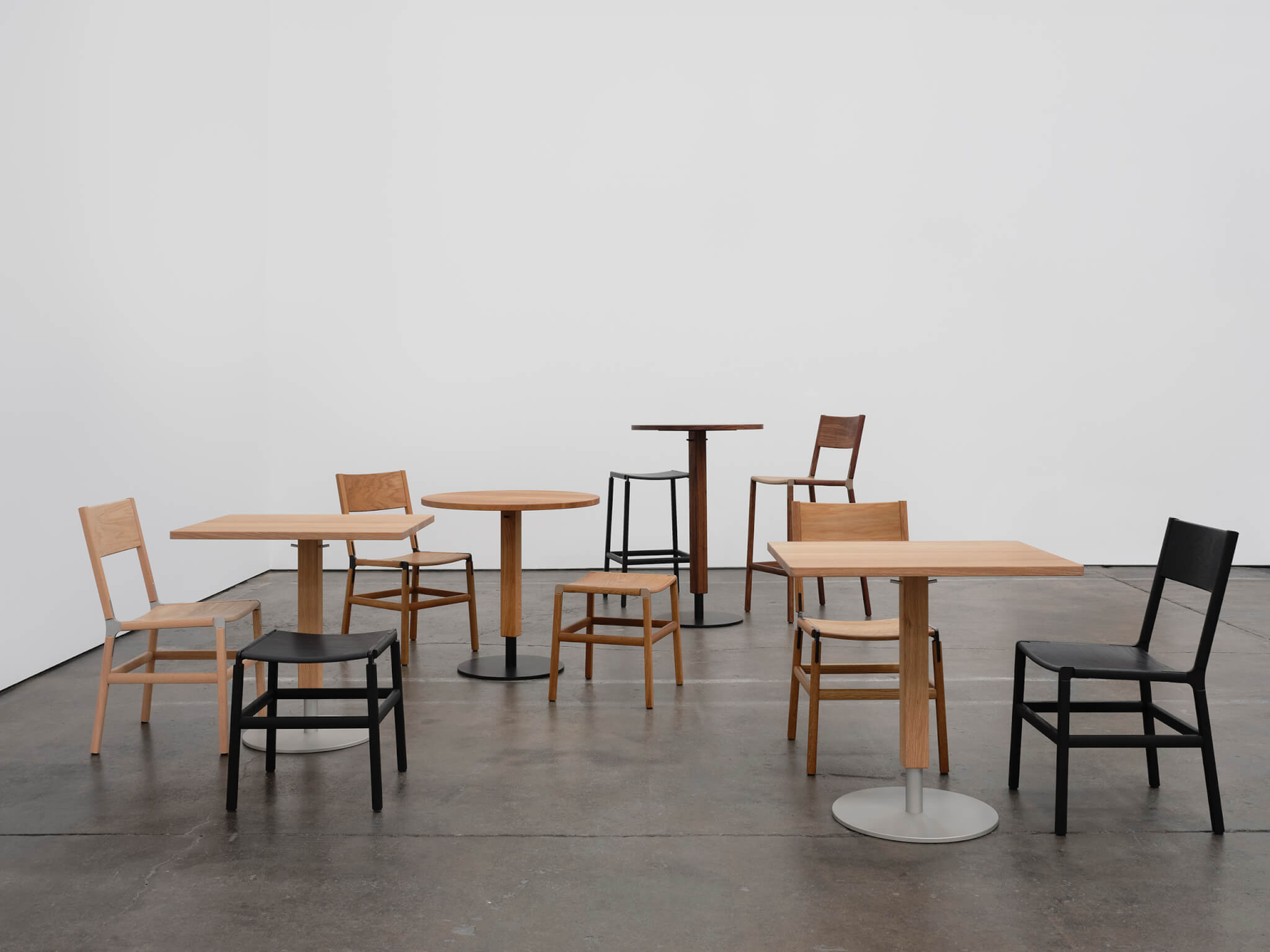
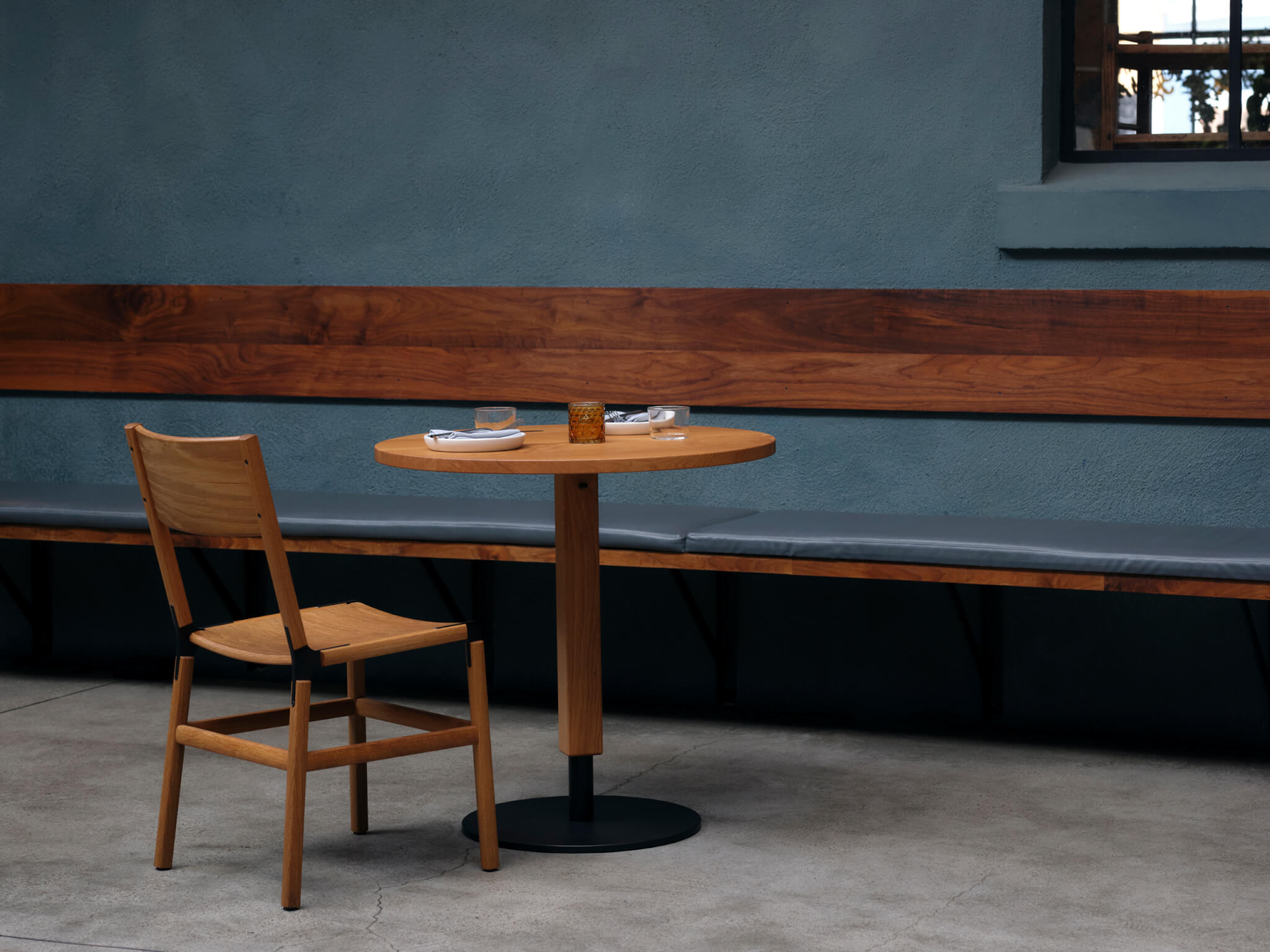
SAH: Your products have seen great success in the restaurant industry, largely in California. What other markets do you hope to target? What do you hope to gain from participating in ICFF?
RB: We’re fortunate to have established some long-standing relationships in the Bay Area over the years. We’re incredibly proud that we’re a brand born out of the Mission District and will continue to work closely with all of our partners on the West Coast. We do have clients elsewhere throughout the country, including New York, but it’s certainly a market amongst many that we’re looking to explore further. Showing up at ICFF really allows us to connect with new audiences.
I’m always going back to this idea of scalability, and how we can introduce and deliver really exceptional, handcrafted products to as many people as possible. We want to continue growing, both in our offerings and also in places where people deeply care about how something is made, be it a home, restaurant or commercial project.








